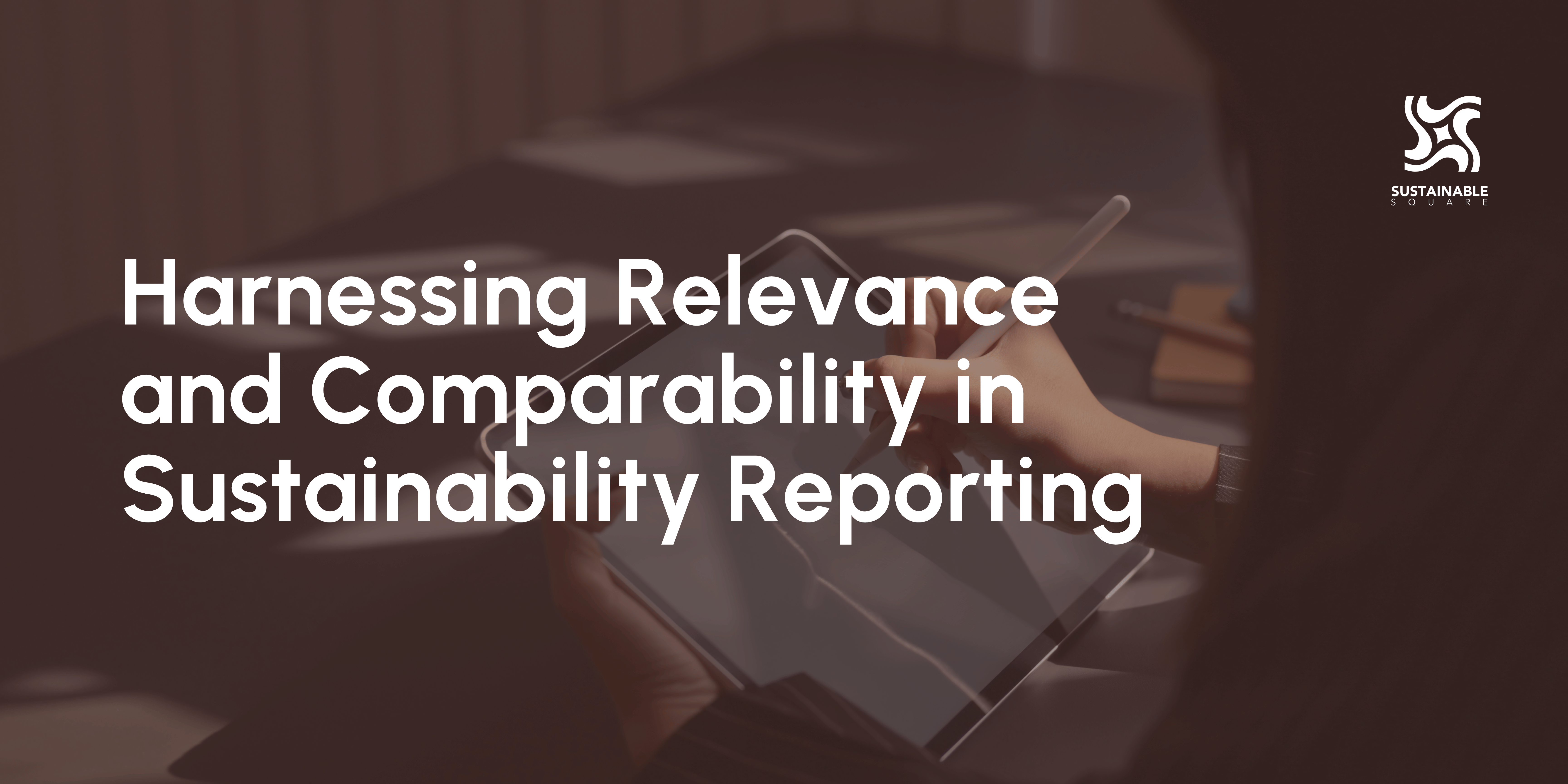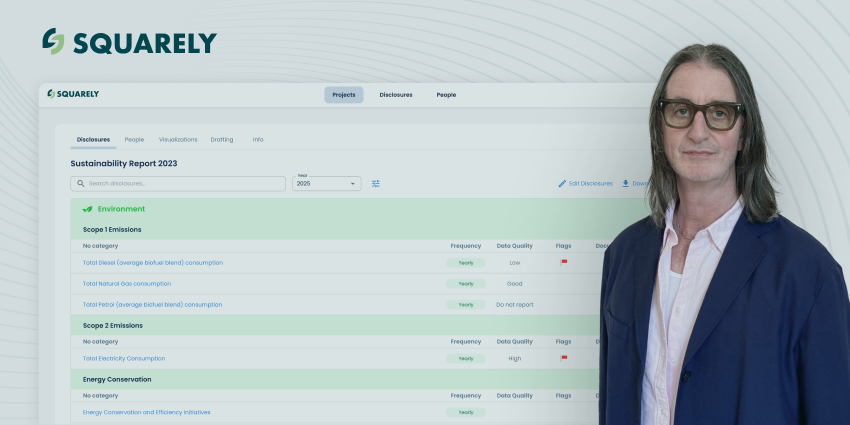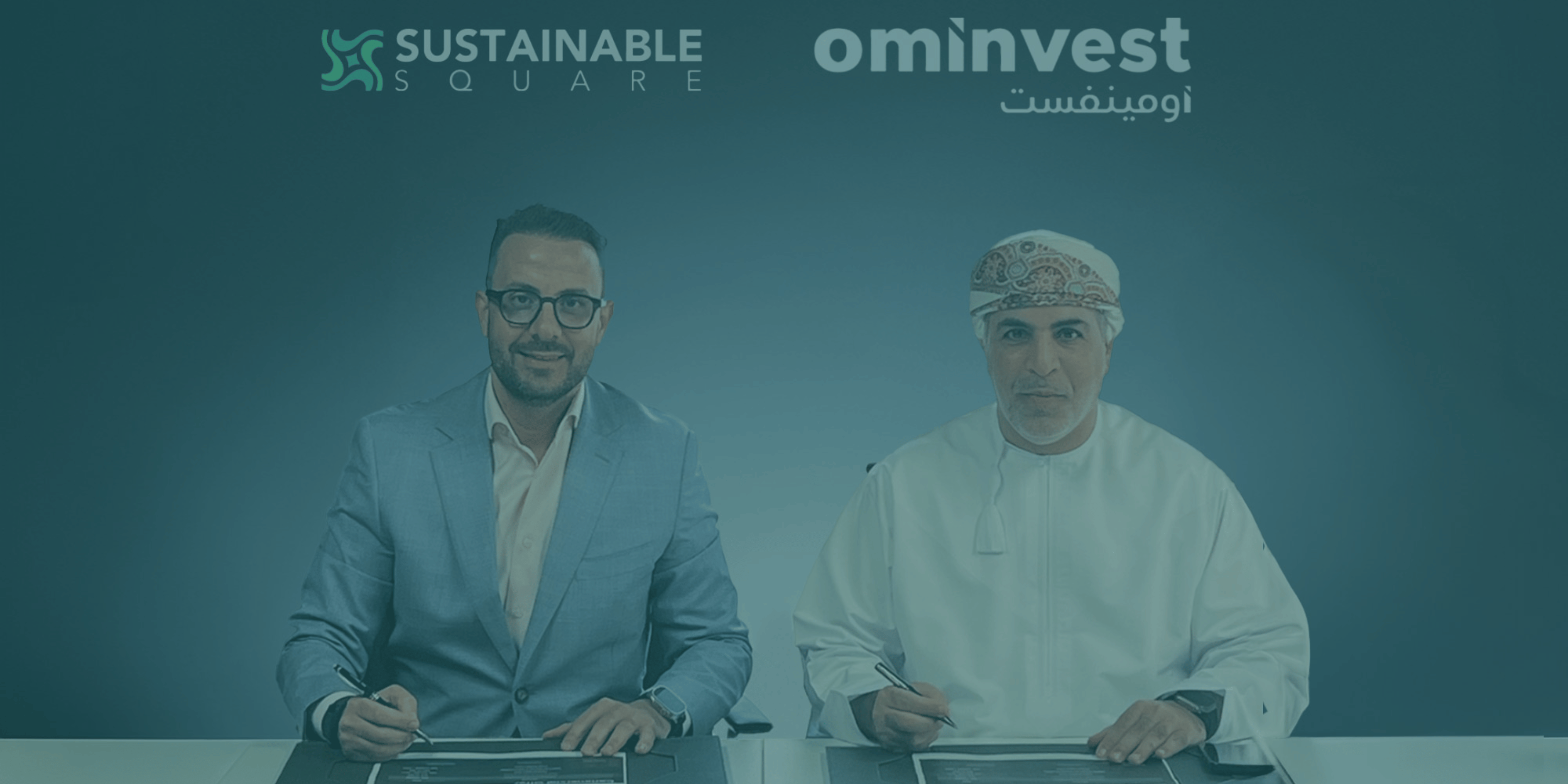Harnessing Relevance and Comparability in Sustainability Reporting
Our team’s expertise in aligning the findings with global frameworks like GRI, SASB, or TCFD ensures that each report is not just relevant to the organisation but also resonates on a global scale.
As a senior consultant at Sustainable Square, I have had the privilege of working with numerous organisations from different industries and being part of a team of experts dedicated to transforming the sustainability reporting landscape. Our collective experience underscores the critical importance of relevance and comparability in crafting reports that are not just informative but transformative for organisations.
Ensuring Relevance
Relevance of information resides at the core of sustainability reporting. At Sustainable Square, our approach to ensuring relevance in sustainability reporting hinges on materiality assessments and stakeholder engagement. This process, which we have refined through numerous projects, involves deep engagement with a company’s stakeholders to identify the ESG issues that matter most.
Alignment and Standardisation
The first step in ESG disclosure is to choose the reporting frameworks that align with the organisation’s goals and context. It is critical to present information that can help users assess the differences between the historical impact of the organisation and that of others.
Our team’s expertise in aligning the findings with global frameworks like GRI, SASB, or TCFD ensures that each report is not just relevant to the organisation but also resonates on a global scale.
Comparability, the Cornerstone of Reporting
Comparability, as the GRI standards stipulate, enables organisations and other information users to assess the organisation’s current impact against its past impact and its progress towards its commitments and set targets; this helps to reveal positive and negative year-on-year trends in its performance. At Sustainable Square, we guide organisations in adopting consistent metrics and indicators enabling them to track, assess, and improve their performance and adjust their strategies. Furthermore, comparability in reporting ensures reports are useful for information users and can be used to benchmark against industry peers, thus facilitating rating activities, investment decisions, and advocacy programs.
Effective Communication: A Blend of Clarity and Creativity
Despite their unwavering commitment to sustainability reporting and disclosure, many organisations fail to communicate their efforts and achievements to critical stakeholders and information users. Moreover, organisations often fall into the malpractice of verbose writing, which can make it difficult for readers to grasp the main points and may be seen as unnecessarily complex or tedious. The understanding that a report’s impact is amplified when it is comprehensible and visually appealing is what shapes Sustainable Square’s approach to emphasizing the importance of clear and engaging communication in sustainability reports. Our team leverages visual storytelling, using charts, infographics, and other tools, to present complex ESG data in an accessible manner.
Continuous Improvement through Stakeholder Involvement and External Assurance
The landscape of sustainability reporting and disclosure is continually evolving, driven by its relative novelty and the dynamic developments within the sustainability field. Two elements that can help organisations maintain quality and relevance in their reporting are stakeholder engagement and external assurance.
In our journey at Sustainable Square, we have consistently advocated for involving stakeholders and seeking external assurance to enhance the quality of sustainability reports. This practice increases report credibility and reflects an organisation’s dedication to transparency and improvement, values that we highly regard in our agency.
Conclusion
The benefits of focusing on relevance and comparability are manifold, as we’ve seen in our work at Sustainable Square. Organisations not only strengthen their brand and market position but also contribute significantly to the global sustainability agenda, aligning with the Sustainable Development Goals and advancing the transition to a low-carbon, circular economy.
In summary, my team’s experience at Sustainable Square has reinforced my belief that relevance and comparability are more than just components of sustainability reporting — they are indicators of an organisation’s commitment to a sustainable future. Through our work, we have seen these principles catalyse change and drive organisations towards increased transparency, accountability, and, ultimately, a more sustainable world.


